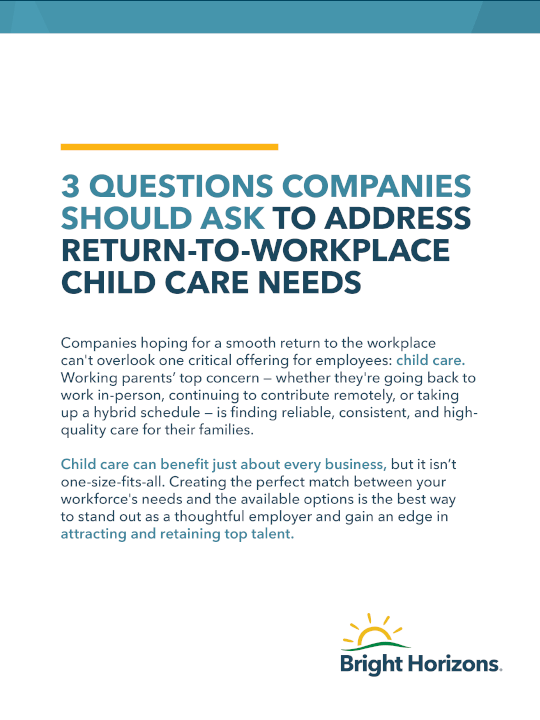Like the answer to the old joke about porcupines: very carefully.
Choosing Benefits amid the Heated Competition for Talent
"Hit or miss approaches may have worked during the nascent days of HR when functional leadership was all that mattered," wrote Bright Horizons Dan Henry on the Huffington Post. "But these days, people departments have a pretty competitive job. They're vying for attention of their elusive human assets in the same way their companies vie for customers with products." Increasingly, says a new report, HR departments are competing for talent in the same way product marketers compete for customers: strategically. "Making the Business Case for Benefits" shows that more than 90% of the most advanced benefits programs do things like regularly assessing their programs to make sure they're in line with evolving employee marketplace. Those leading the charge are taking other pages from the business-strategy playbook as well.They've got their eye on the market
Like any business sector, trends in HR change and those not paying attention risk losing out to competitors. The most progressive benefits leaders understand health benefits are the baseline, and are regularly assessing the market and updating their offerings on average once every three years.
They're using focus groups
Product marketers don't guess the demand for their products; they ask the potential audience. Benefits leaders are doing the same, going to employees to find out exactly what they need and whether proposed products will be a draw.
They're employing data
The most successful benefits programs have developed methods for measuring usage to understand what programs align with goals, and what would make the organization more attractive to the hiring pool.
They're benchmarking against competitors
It's not enough to know what you want to offer; you also need to know how your product stacks up against competitors.
Like selling products and services, observed Dan, "Successful HR initiatives require a game plan. Done right, it's a strategic part of your business with measurable returns. Done wrong and it's just another line item written off on an expense report."Read the full report, here.





